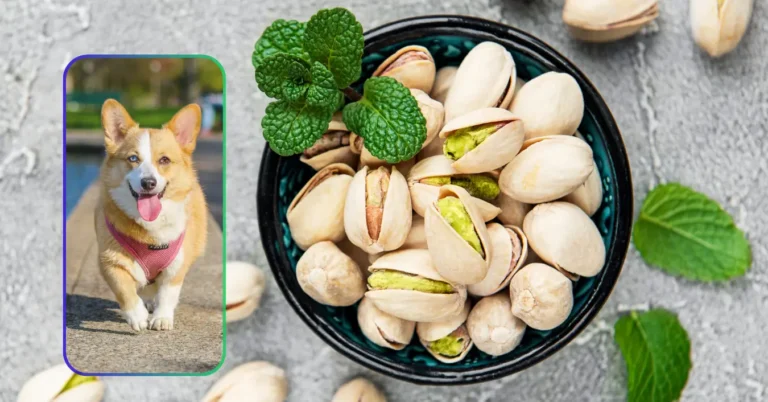Can dogs eat pistachios? Pistachios are more than just a tasty and satisfying snack for humans – they’re also packed with essential nutrients. But what about our furry friends? Can dogs safely indulge in these delectable green nuts? Let’s delve into the world of pistachios and explore whether they should find a place in your canine companion’s diet.
Another Interesting Read: Can Dogs Eat Cantaloupe? What You Need To Know
Your furry companions have a knack for wanting a bite of whatever we’re enjoying, and pistachios are no exception. As a nut enthusiast, you may be wondering if your canine friend can also savor these delightful treats. The good news is that dogs can indeed eat pistachios without any toxicity concerns. However, before you start sharing your pistachio stash, it’s important to understand the pros and cons of including these nuts in your dog’s diet.
The Nutritional Value of Pistachios for Dogs
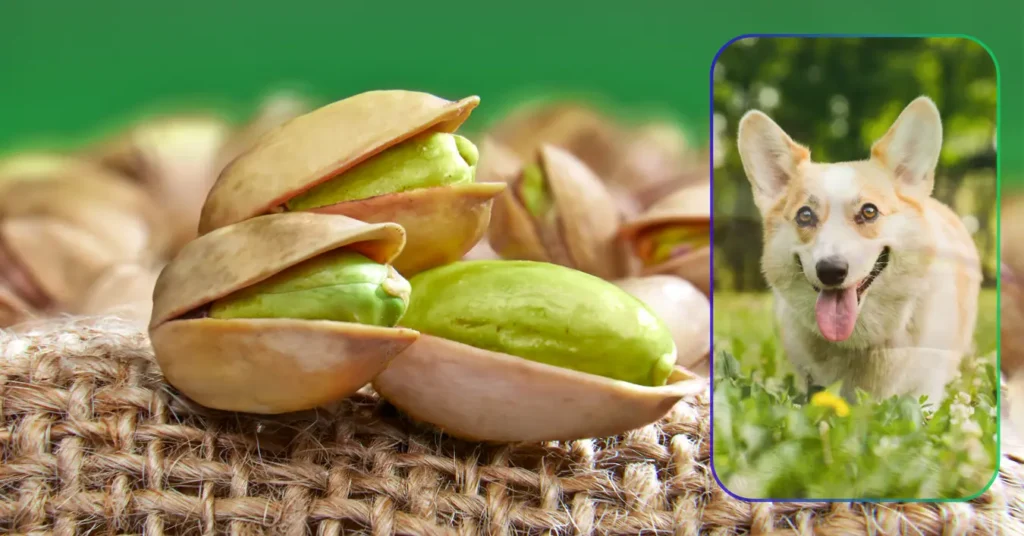
Pistachios, like many nuts, offer a range of nutritional benefits that can positively impact your dog’s health. Some key nutrients found in pistachios include:
These nutrients can certainly enhance your dog’s diet, but there are important factors to consider before making pistachios a regular treat. The good news is that pistachios fall on the safer side of the spectrum for dogs. Consuming a few pistachios is generally considered okay, and they bring some nutritional perks for your furry friend, such as:
However, moderation is key. Concerns arise when dogs indulge in excessive quantities of pistachios over an extended period. Like most nuts, pistachios are rich in fat and calories, and overconsumption could lead to various health issues, including obesity, pancreatitis, diabetes, or heart disease. Additionally, the often salted nature of pistachios raises a red flag, as regular salt intake is unhealthy for dogs.
A potential additional worry is aflatoxin poisoning. The Federal Drug Administration warns about aflatoxins, toxins produced by mold that can grow on various foods, including pistachios. These toxins may be present without visible mold, affecting both humans and dogs.
A diet heavy in mold-infected pistachios might result in aflatoxin poisoning, with symptoms such as:
If you observe any of these symptoms in your dog after pistachio consumption, it’s crucial to promptly contact your veterinarian for guidance and assistance. Prioritizing your dog’s well-being is vital in making informed decisions about their diet.
Benefits of Pistachios
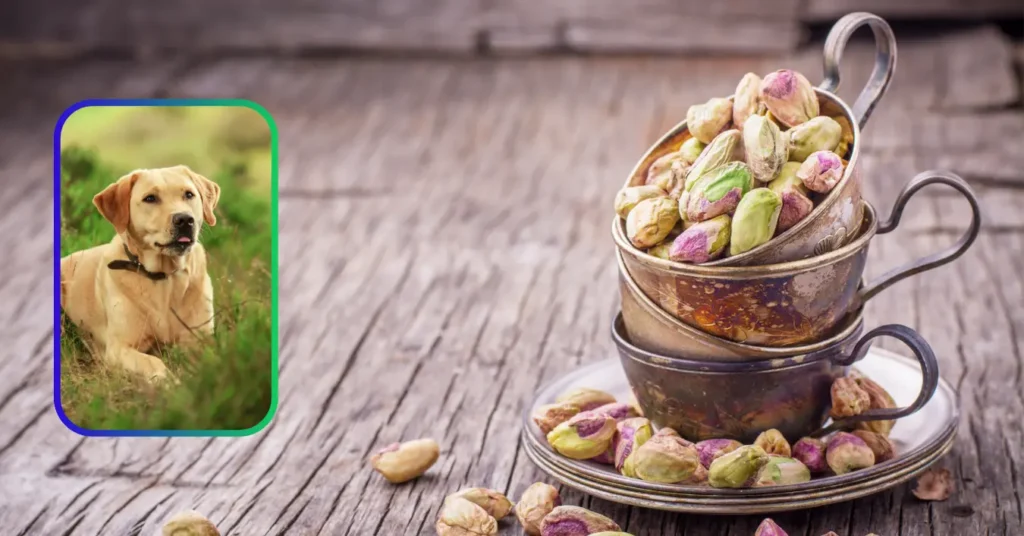
While pistachios offer a nutritional boost, it’s crucial to be mindful of portion sizes and potential risks associated with overindulgence. Here are a couple of factors to keep in mind:
1. Caloric Content and Fat: Each pistachio packs a small caloric punch, with about four calories per nut. Too many pistachios can lead to excessive calorie intake, potentially contributing to weight gain or obesity. Additionally, the fat content in pistachios, although healthy in moderation, can become problematic if consumed excessively, potentially leading to gastrointestinal issues and even pancreatitis.
2. Aflatoxin Poisoning: Although pistachios themselves are not toxic to dogs, they can sometimes be vulnerable to aflatoxin poisoning. Aflatoxins are harmful substances produced by certain molds that can grow on nuts and grains. These toxins can cause a range of symptoms, including vomiting, diarrhea, and lethargy. Therefore, it’s essential to ensure that the pistachios you offer are free from mold and have been stored properly.
Safe Ways to Share Pistachios with Your Dog
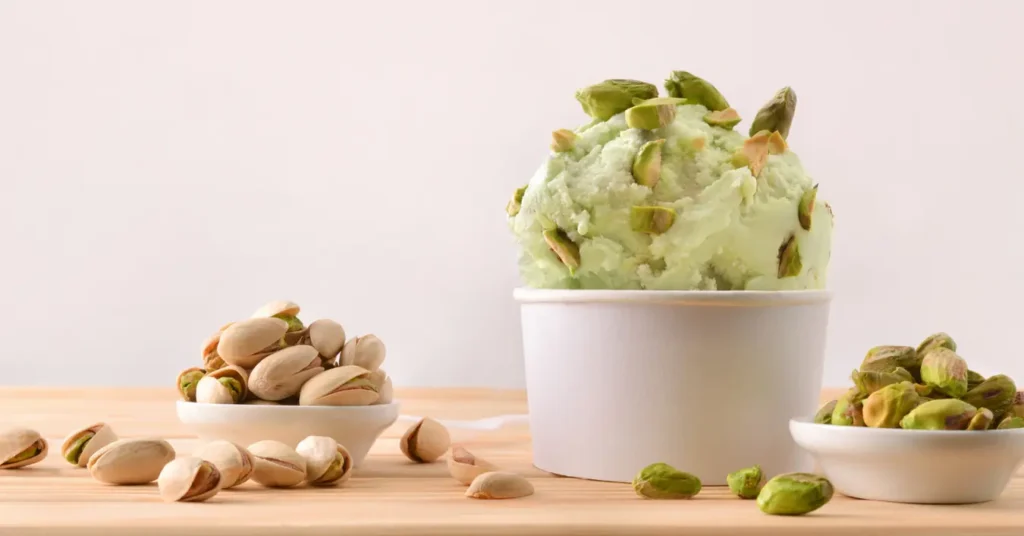
If you’re eager to share the joy of pistachios with your canine companion, here are some safe practices to follow:
1. Opt for Unsalted Pistachios: Salted pistachios can contribute to salt toxicity in dogs. Stick to unsalted varieties to prevent any potential health issues.
2. Remove Shells: Pistachio shells pose a choking hazard and can lead to gastrointestinal blockages. Always remove the shells before offering pistachios to your dog, or consider purchasing no-shell pistachios.
3. Watch for Portion Sizes: Moderation is key. Offer pistachios as an occasional treat and avoid excessive consumption to prevent calorie overload.
4. Consider Your Dog’s Individual Needs: The amount of pistachios your dog can safely consume depends on their size, activity level, and overall health. Consult your veterinarian to determine an appropriate portion size for your furry friend.
Safely Treating Your Pup to Pistachios:
If you’re considering sharing pistachios with your furry friend, it’s essential to take a thoughtful approach to ensure their well-being. Follow these guidelines:
However, it’s crucial to be aware of potential health concerns related to the high-fat content in pistachios, as it may lead to pancreatitis, a condition affecting the pancreas. Even small amounts could trigger health issues for your dog.
Watch for Warning Signs:
If you observe any of these symptoms after your dog consumes pistachios, it’s crucial to contact your veterinarian promptly. Prioritizing your pet’s well-being is key when introducing any new food items into their diet.
Exploring Healthy Alternatives
While pistachios can be a tasty treat, variety is essential for a well-rounded canine diet. Consider incorporating other healthy snacks into your dog’s routine, such as:
Remember to introduce new treats gradually and observe your dog’s reaction. Always prioritize their well-being by consulting your veterinarian before making significant changes to their diet.
Risks and Dangers
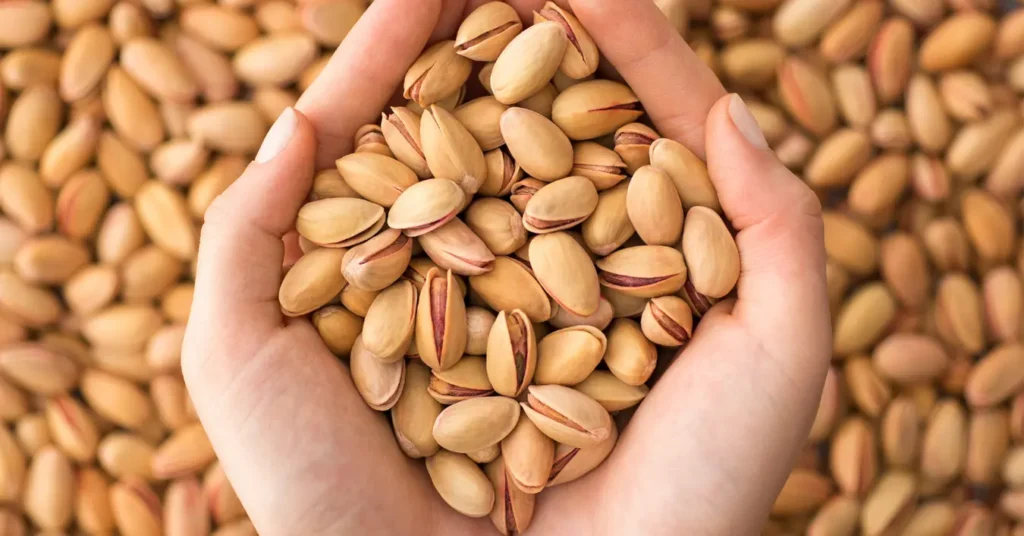
Pistachios are a popular snack enjoyed by many humans, but when it comes to our furry friends, caution should be exercised. You might be wondering, “Can dogs eat pistachios?” While it might be tempting to share your tasty treat with your canine companion, there are some important considerations to keep in mind to ensure your dog’s health and safety.
Choking Hazard
One of the primary concerns with feeding pistachios to dogs is the potential choking hazard. Dogs, in their eagerness to eat, might not thoroughly chew the nuts or their shells, leading to a choking risk. To prevent this, it’s crucial to properly dispose of pistachio shells in a secure trashcan or compost bin that your dog cannot access. Being mindful of your dog’s surroundings and ensuring they don’t have access to pistachio shells can help mitigate this risk.
Pancreatitis Risk
Pistachios have a relatively high-fat content, which can be problematic for dogs. Dr. Klein, a renowned veterinarian, points out that the nut’s high fat and salt content could contribute to gastrointestinal issues in certain dogs. The consumption of fatty and salty snacks like pistachios could potentially lead to the development of pancreatitis, a serious condition involving inflammation of the pancreas. Keep a watchful eye for symptoms such as diarrhea, vomiting, and loss of appetite. If you observe any of these signs, it’s essential to consult a veterinarian promptly. Pancreatitis can progress swiftly and requires immediate attention.
Signs of pancreatitis:
Toxic Components
While pistachios are not inherently toxic to dogs, they do contain substances that can be harmful to our canine companions. Urushiol, a compound also found in poison ivy, can induce an allergy-like response in dogs, making them sick. Additionally, the shells of pistachios are susceptible to mold growth, which can lead to the production of a toxin known as aflatoxin. Consuming aflatoxin can result in weakness, lethargy, gastrointestinal disturbances, and even seizures in dogs. Therefore, it’s crucial to be cautious about exposing your dog to pistachio shells, especially if they are visibly moldy.
Intestinal Blockage Risk
Choking isn’t the only concern. Pistachios, with or without shells, can also trigger intestinal blockages. Keep an eye out for symptoms like vomiting, loss of appetite, abdominal pain, weakness, lethargy, diarrhea, constipation, or weight loss. Should these signs manifest, reach out to your veterinarian promptly.
Moderation Matters
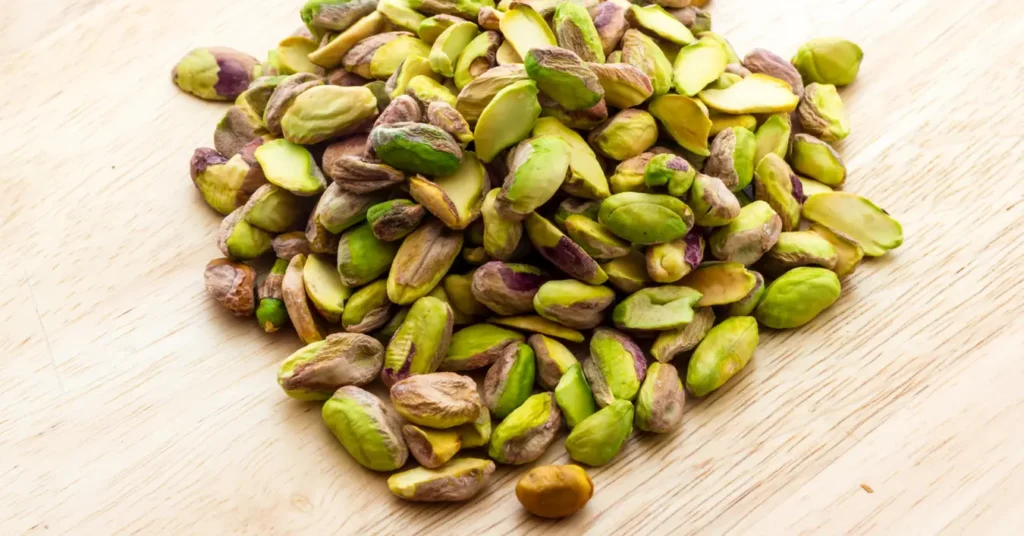
While pistachios offer nutritional perks, going overboard can lead to trouble. These nuts, like most others, are high in fat and calories. Excessive consumption can contribute to weight gain, potentially paving the way for health issues like obesity, diabetes, and heart disease in your canine companion. Moreover, some pistachios are salted, and a high-sodium diet isn’t suitable for dogs.
A lesser-known concern when it comes to pistachios is the potential for aflatoxin poisoning. Aflatoxins are toxins produced by molds that can grow on various foods, including pistachios. These toxins are invisible to the naked eye and can harm both dogs and humans. Aflatoxin poisoning can lead to symptoms such as loss of appetite, sluggishness, vomiting, jaundice, unexplained bruising or bleeding, and diarrhea. If you observe any of these signs after your dog indulges in pistachios, don’t hesitate to contact your veterinarian.
While pistachios themselves might be relatively safe, pistachio ice cream is a different story. The combination of sugar, fat, and potential toxic ingredients like xylitol or chocolate makes it an unhealthy choice for your canine companion. Remember, some dogs are lactose intolerant as well.
Portion Control for a Happy Pup
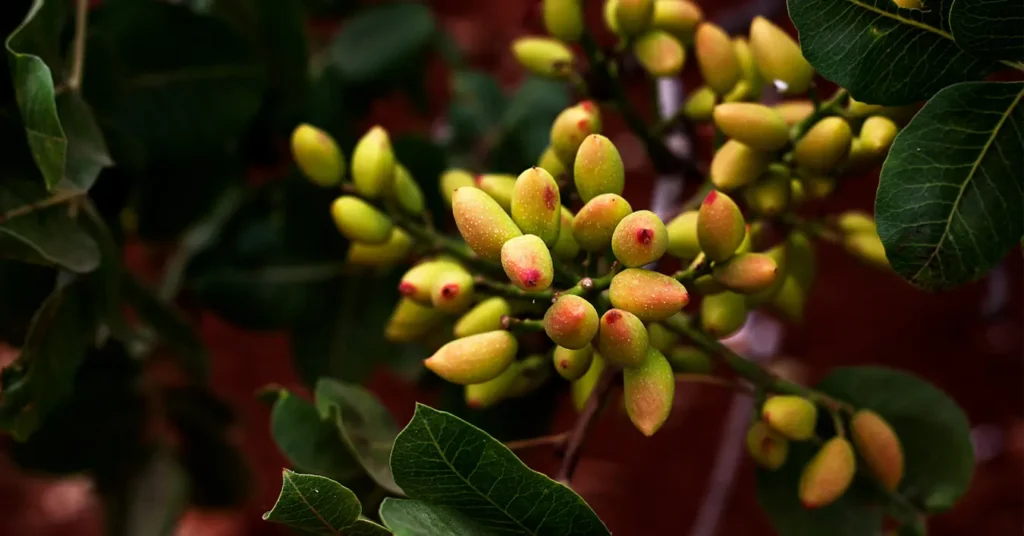
If you’re considering sharing pistachios with your dog, remember that moderation is crucial. Treats, even healthy ones, should comprise only 10% of your dog’s diet. The remaining 90% should consist of a well-balanced dog food diet. To help you gauge the right amount, here’s a rough guideline based on your dog’s size:
If you decide to share pistachios with your pup, take these precautions:
Optimal Times for Dogs to Enjoy Pistachios
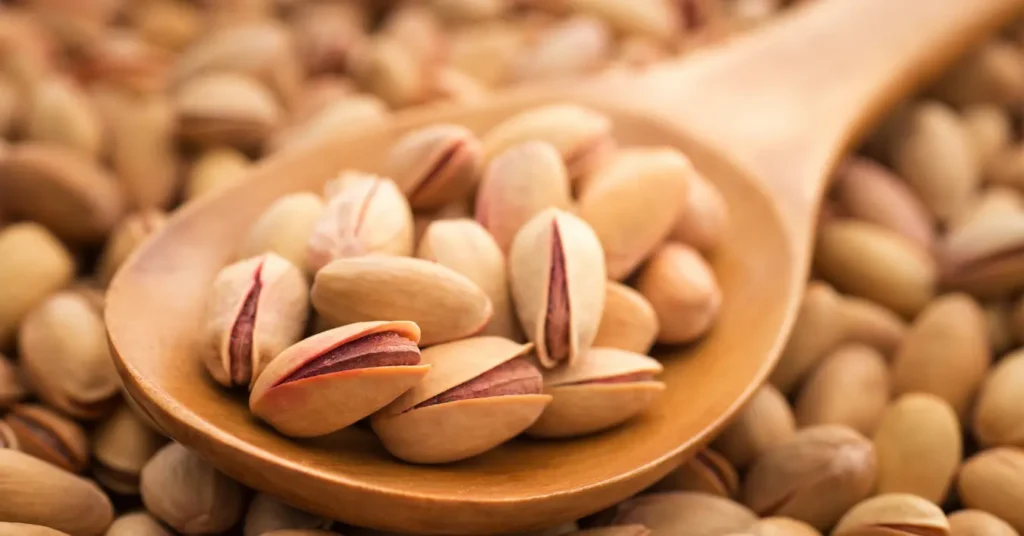
There are instances when pistachios can provide certain health advantages to dogs. These nuts contain protein, vitamins, minerals, and fiber, and their inclusion of “healthy fats” holds the potential to enhance skin health and mitigate inflammation.
Nevertheless, it’s crucial to note that dogs should consume pistachio nuts in moderation. Larger breeds might be able to consume up to 10 pistachios daily, while smaller dogs should limit themselves to just one. Essentially, the quantity hinges on your dog’s size.
It’s highly advisable to engage in a conversation with your veterinarian prior to introducing pistachios into your dog’s diet. Considering the numerous risks associated, it’s likely a prudent choice to reserve pistachios for your own consumption and opt for an alternative treat for your beloved canine companion.
Pistachio Poisoning
Among the hazards posed by nuts, one of the most concerning is aflatoxin, a harmful compound produced by the Aspergillus mold. Canines have a heightened vulnerability to these toxins, which are generated by specific fungi found on crops such as cottonseed, peanuts, corn, and various tree nuts, including pistachios.
The signs of pistachio poisoning triggered by aflatoxin exposure in dogs encompass:
Furthermore, pistachios contain urushiol, a chemical also present in poison ivy. Urushiol can lead to allergic reactions in dogs, particularly in the vicinity of their mouths and facial areas.
It’s not just pistachios that can pose a threat to your furry friend. Macadamia nuts should never find their way into your dog’s diet, as they can induce nerve and muscle damage, accompanied by severe lethargy, increased body temperature, vomiting, muscle tremors, joint stiffness, and an inability to walk.
Conclusion | Can Dogs Eat Pistachios?
As a doting dog owner, your furry friend’s health and happiness are of utmost importance. When it comes to sharing pistachios with your canine companion, striking a balance between indulgence and caution is key. While pistachios aren’t inherently toxic to dogs, their high fat content and potential risks of pancreatitis underscore the importance of moderation.
Opting for plain, unsalted pistachios as an occasional treat can provide a safe way for your dog to enjoy a nibble. However, it’s crucial to remain vigilant about portion sizes, ensuring that your pup’s pistachio consumption remains minimal. Consulting with your veterinarian before introducing pistachios or any new treat into your dog’s diet is a prudent step to take.
FAQs
You Might Also Like:
